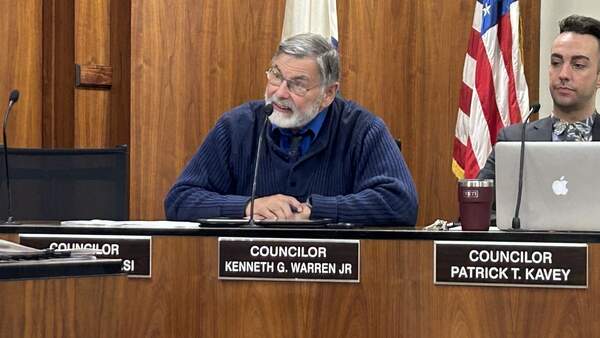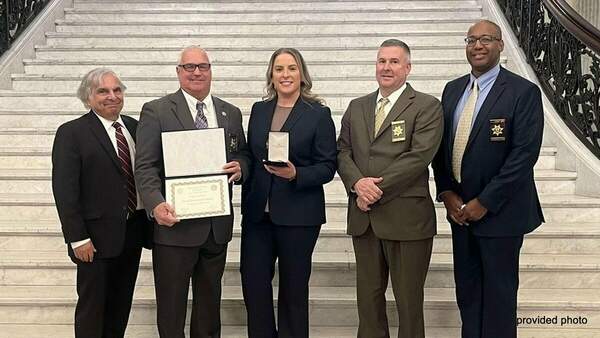BOSTON — Today, Governor Maura Healey appointed Commissioner Jordan Maynard as Interim Chair of the Massachusetts Gaming Commission, following the announcement of Cathy Judd-Stein's retirement.
The administration is in the process of searching for a permanent chair. Maynard was appointed as a Commissioner by Governor Charlie Baker, then-Attorney General Healey, and Treasurer Deb Goldberg in 2022.
"Since joining the Commission, Jordan Maynard has proven to be a leader in this space. He has worked with people across the gaming industry and has helped oversee Massachusetts gaming regulations. We are grateful for his service as he takes over as Interim Chair and look forward to working with him more closely," said Governor Maura Healey. "In the meantime, we continue our search for a permanent chair."
"We are thankful for Jordan's leadership as he steps into this new role as Interim Chair of the Massachusetts Gaming Commission," said Lieutenant Governor Kim Driscoll. "His track record speaks for itself and we are grateful for his continued service."
The Massachusetts Gaming Commission was created after "An Act Establishing Expanded Gaming in the Commonwealth" was signed into law on November 22, 2011. The Commission is a full-time, five-member independent body that is the single licensing and regulatory body of the casino, horse racing, and sports wagering industries in Massachusetts.
The Commission consists of 5 commissioners, 1 appointed by the governor, 1 appointed by the attorney general (who must have experience in criminal investigations and law enforcement), 1 appointed by the State Treasurer (who must be proficient in corporate finance and securities), and 2 appointed by a majority vote of the same three constitutional officers. The Governor designates the Chair of the Commission.
Jordan Maynard was appointed as a Commissioner to the Massachusetts Gaming Commission in July 2022 and began his five-year term on August 1, 2022. Massachusetts Governor Charlie Baker, Attorney General Maura Healey, and Treasurer Deborah Goldberg appointed Maynard to the Commissioner spot slated for an individual with experience in the legal and policy issues related to gaming.
"I'm honored that Governor Healey and Lieutenant Governor Driscoll have placed their trust in me to serve the Gaming Commission in this interim role," said Jordan Maynard. "I was grateful to be appointed Commissioner by Governor Baker, then-Attorney General Healey and Treasurer Goldberg several years ago, and have been deeply appreciative of the opportunity to serve the people of Massachusetts and support this important industry."
Maynard previously served as Governor Baker's Chief Secretary and Director of Boards and Commissions for the Office of the Governor from February 2019 through July 2022. In that capacity, he oversaw appointments for over 800 state boards and commissions and recruited and placed senior officials across the administration.
| If you would like to contribute information on this article, contact us at info@iberkshires.com. |















